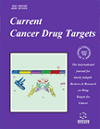
Full text loading...

Breast cancer (BC) represents a complex malignancy shaped by both genetic predisposition and environmental influences, with growing evidence implicating the gut microenvironment in its pathogenesis. While the therapeutic potential of gut-targeted interventions has gained attention, the precise molecular mechanisms remain poorly characterized. Traditional Chinese medicine (TCM) has emerged as a valuable therapeutic approach due to its widespread availability and demonstrated clinical efficacy, particularly through its capacity to modulate gut homeostasis and exert systemic effects across multiple disease states, including breast cancer. Specific TCM formulations, including CCM, CMM, and MBC, have shown significant potential to reshape gut microbial composition, influence microbial metabolite production, restore immune homeostasis, enhance short-chain fatty acid biosynthesis, regulate estrogen metabolism, and induce beneficial epigenetic modifications, thereby offering a multifaceted therapeutic strategy against breast cancer. This review systematically examines the pharmacological mechanisms, molecular targets, and clinical implications of TCM-based interventions in breast cancer management, highlighting their potential to open new avenues in oncological therapeutics.

Article metrics loading...

Full text loading...
References


Data & Media loading...